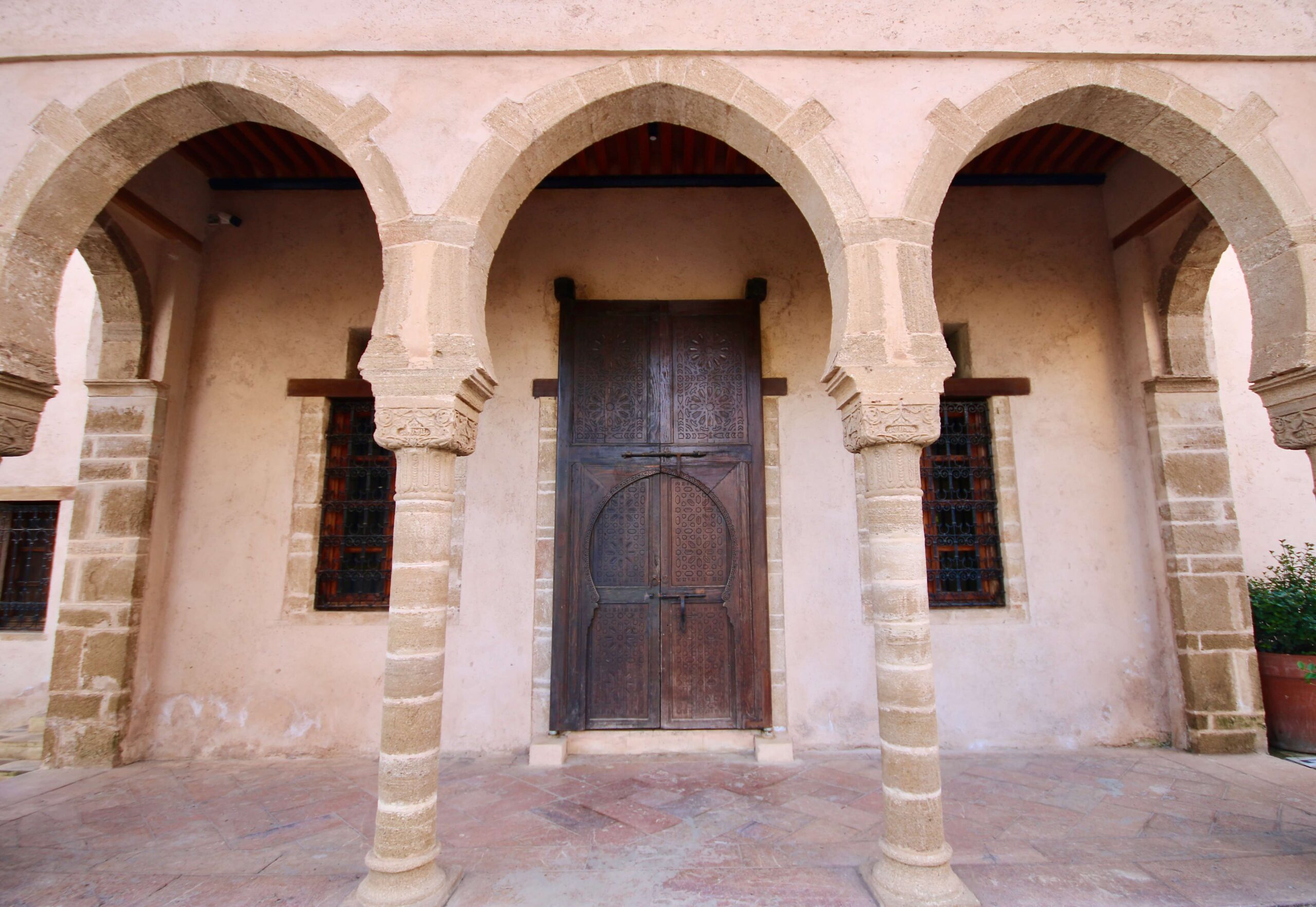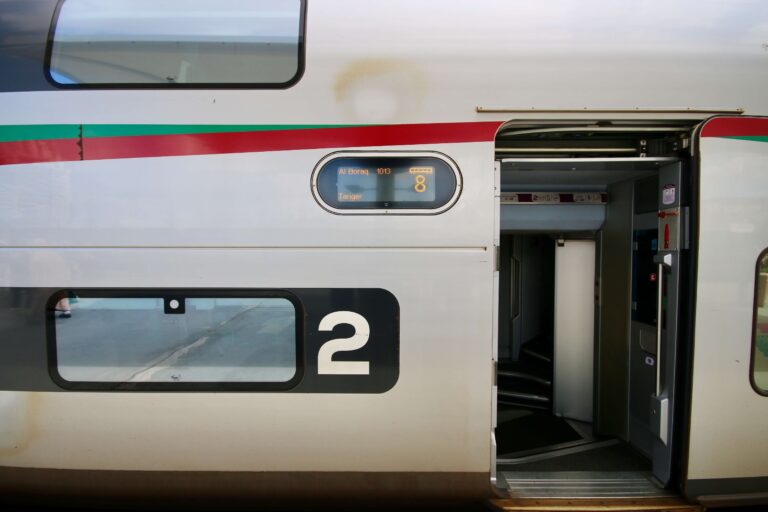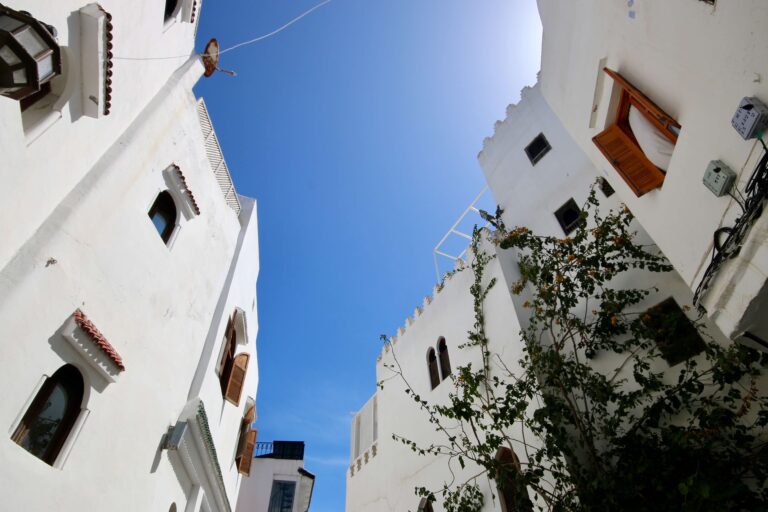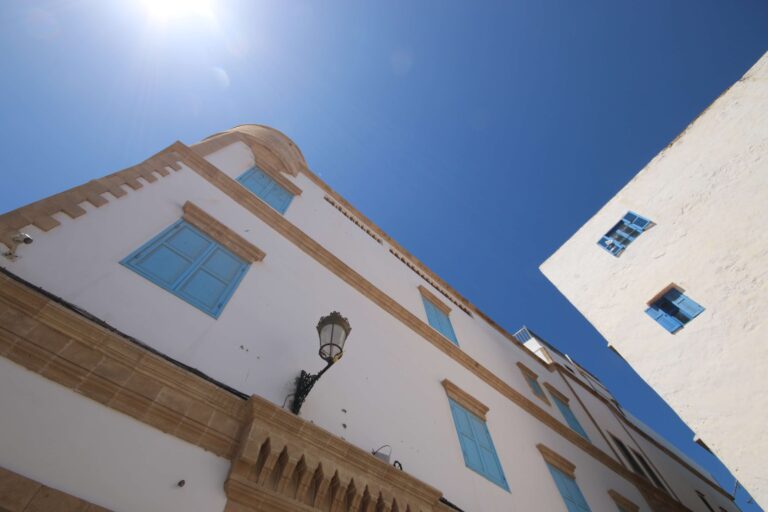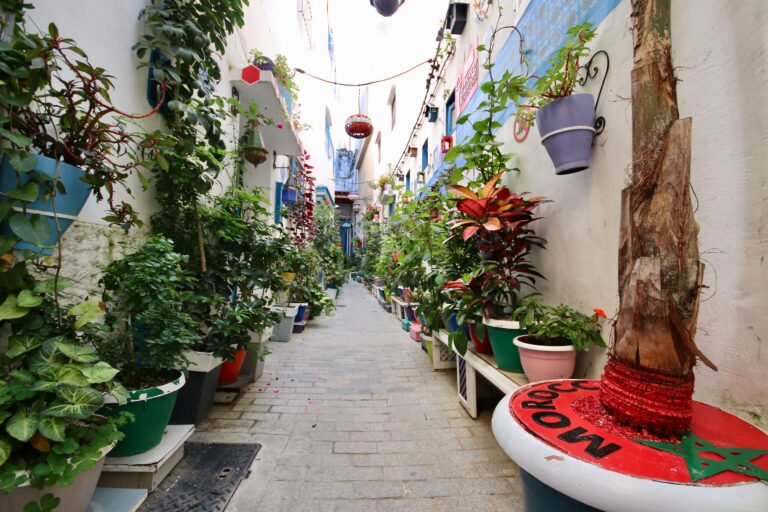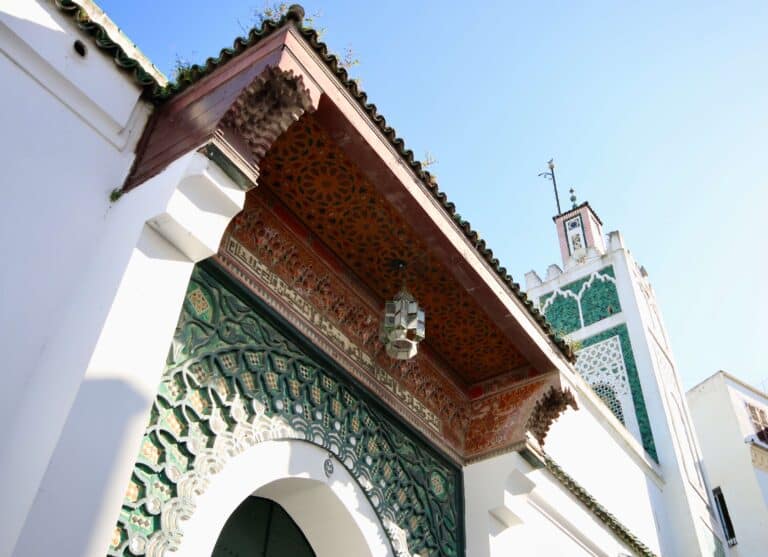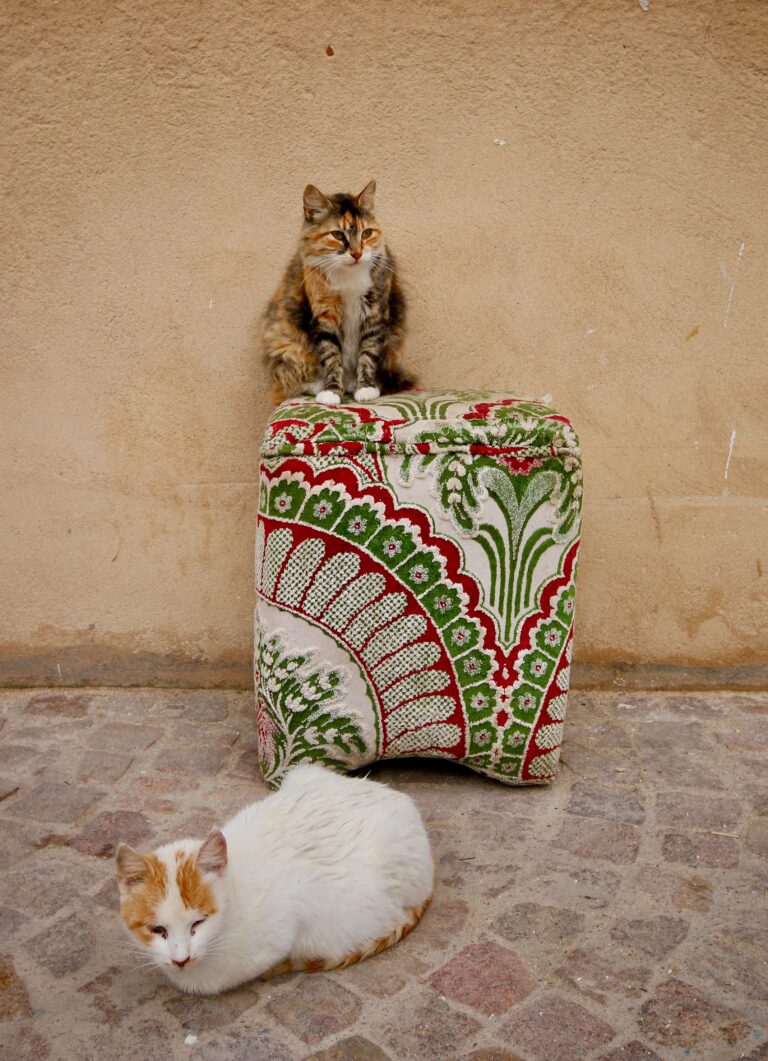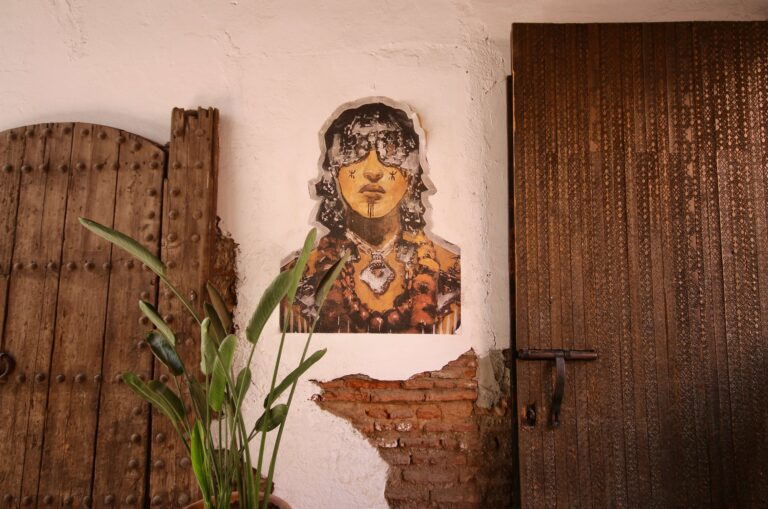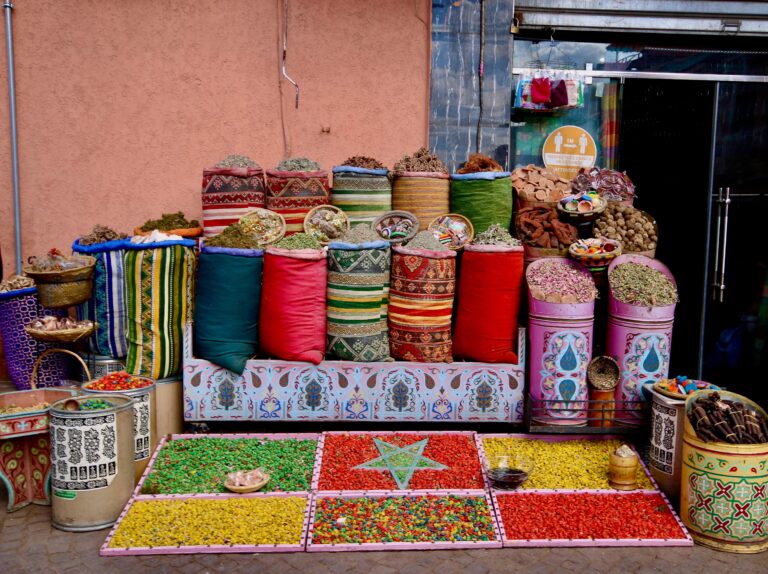Cultural Etiquette in Morocco: What Solo Travellers Should Know
Travelling solo in Morocco? Discover everything you need to know about cultural etiquette in Morocco and tips for exploring the country respectfully and confidently.
Travelling solo in Morocco is an incredible experience – it’s how I first explored the country more than 10 years ago. You can travel at your own pace, visit the places that interest you the most and there are more opportunities to connect with other people.
But it’s also a country where culture and tradition run deep, and understanding local etiquette can make your trip safer and far more rewarding. Once I took the time to learn about local customs and the meaning behind interactions, I fell that much more in love with Morocco!
Whether you’re wandering through Marrakech’s Djemaa el-Fnaa, trekking the Atlas Mountains or learning to surf in Taghazout, here’s your essential guide to cultural etiquette in Morocco. It’s designed specifically for solo travellers who want to explore Morocco with confidence, all while showing respect to locals.
Is Morocco good for solo travelling? Discover all the answers in my detailed article here.
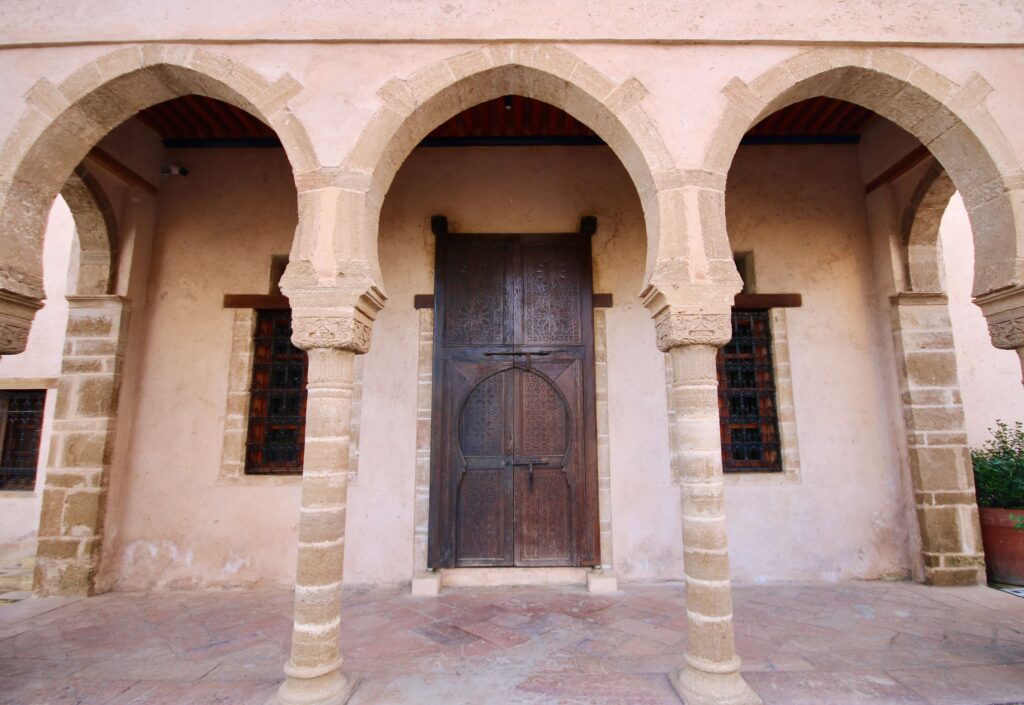
Disclosure: This article contains affiliate links, meaning I earn a small commission when you make a purchase. Affiliate links cost you nothing and ensure my content stays free!
1. Greetings and Social Customs
Moroccans are known for their hospitality and politeness, and greetings are an important part of daily life. If you watch Moroccans greeting one another, it is never just a quick “Hi, how are you?” but an extended questioning of their health and that of their family.
- A simple “Salam alaikum” (peace be upon you) is the most common greeting between Moroccans. The reply is “Wa alaikum salam” (and peace be upon you too). Locals may also address you with “Bonjour” – French is widely spoken as a second language.
- Handshakes are common between men, except when they know each other really well. In that case, they will usually embrace and kiss one another on each cheek.
- Women generally kiss one another multiple times on each cheek – just follow their lead!
- Greetings are more conservative between opposite genders. If in doubt, wait for the other person to initiate.
- When meeting locals, it’s polite to ask about their well-being and family before jumping into business or conversation. Before asking the price of something in the souks or the cost of a taxi fare, always begin with a greeting (in whichever language you choose) as the bare minimum.
For more common Darija (Moroccan Arabic) phrases for travellers, check out my language guide here. To learn more about shopping in Morocco’s souks, check out my detailed guide for solo travellers.
Here are a few other key phrases in Darjia (Moroccan Arabic) that will endear you to locals:
Bslama – Goodbye
Shukran – Thank you
Afak – Please
La, shukran – No, thank you
Smah li – Excuse me / Sorry
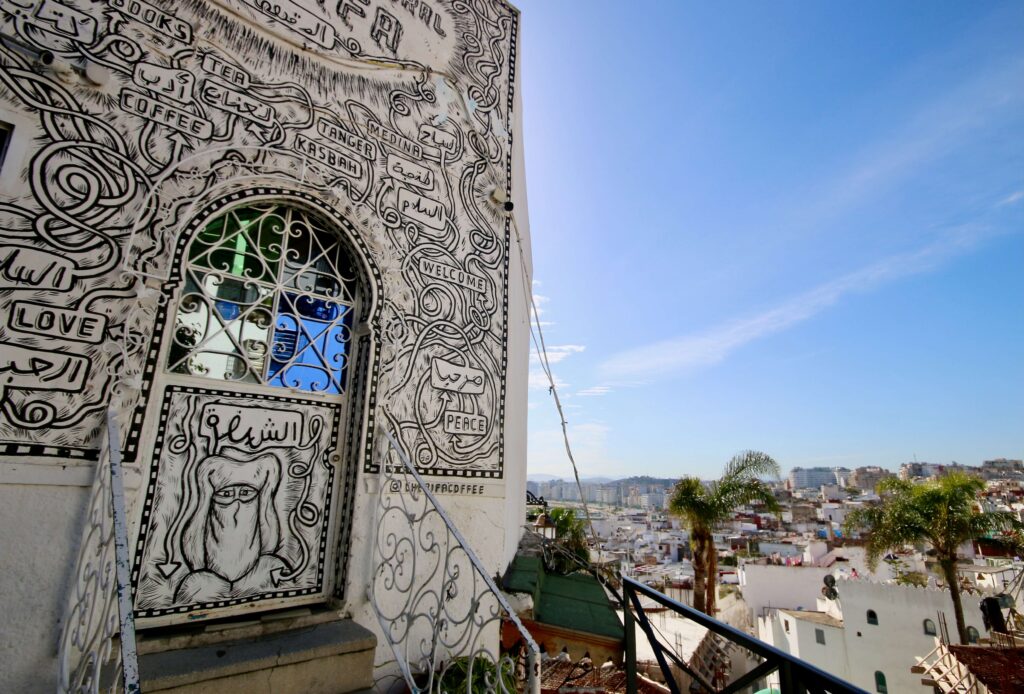
2. Dress Modestly and Respect Local Norms
Morocco is a Muslim-majority country and modesty is valued. While major cities like Marrakech and Casablanca are used to tourists, dressing respectfully goes a long way toward avoiding unwanted attention and showing cultural awareness.
In my experience, you’ll blend in better and feel more comfortable, all while showing appreciation for cultural etiquette in Morocco.
- For women: Opt for loose-fitting clothes that cover shoulders, cleavage and knees. Long skirts, dresses or light trousers are ideal. Avoid short shorts, mid-riff tops and overtly figure-hugging attire.
- For men: Avoid sleeveless tops or very short shorts when walking around towns or religious sites. Most Moroccan men cover their knees and singlet tops are rarely seen.
- Beachwear is fine at the coast or resorts – you can wear a bikini without any issues. But bring something to cover up when leaving the beach area.
Discover some of my favourite off-the-beaten-path Morocco destinations for solo travellers here.
3. Gender Dynamics: What Solo Travellers Should Know
Morocco is friendly to solo travellers, including women. But social interactions can feel different compared to Western countries and some female tourists report receiving unwanted attention from men.
Generally speaking, Moroccans are respectful and they want you to leave with a good impression of their country. When you show cultural awareness and respect, you’ll find people are eager to help and protect solo travellers.
- Solo female travellers may get occasional stares or unsolicited comments, particularly in tourist-heavy areas. Maintaining a confident air and avoiding eye contact usually discourages unwanted attention.
- Public displays of affection – even between married couples – are best avoided. Holding hands is fine, but kissing or embracing in public is generally frowned upon.
- When chatting with locals of the opposite sex, be friendly but maintain clear boundaries. A warm smile and a firm “no, thank you” are often enough to end unwanted advances.
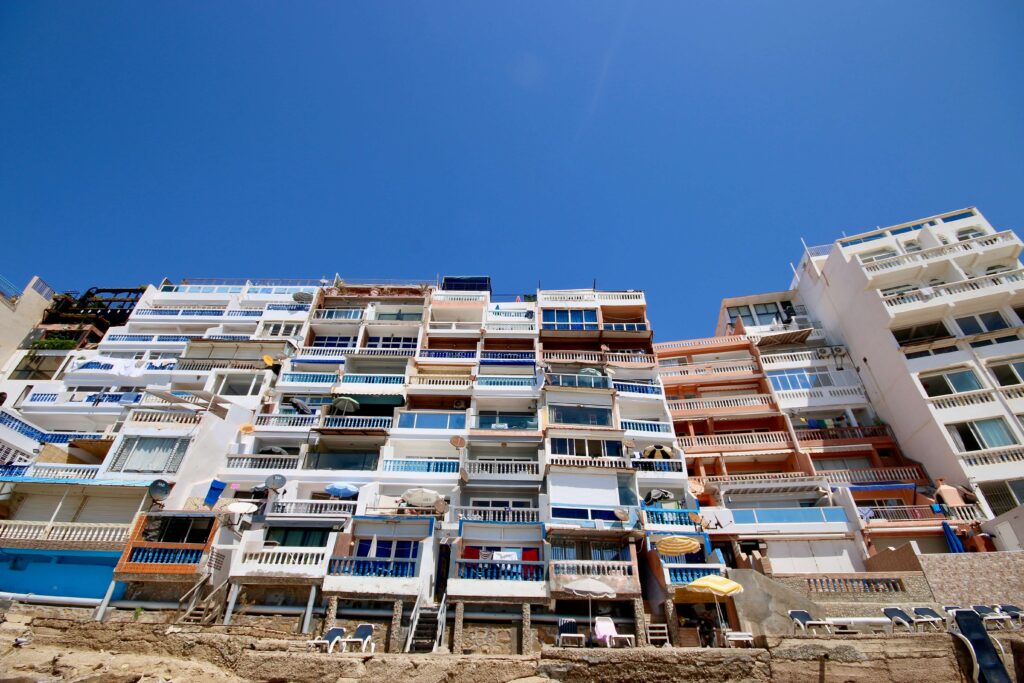
4. Photography Etiquette
Morocco is incredibly photogenic, but always ask before taking someone’s photo, especially in rural areas or markets. Not doing so can be seen as highly disrespectful.
- Avoid photographing police, military or government buildings – you may be asked to delete the images. Never photograph gendarmes or police at roadblocks – this is a big no-no!
- Many locals don’t like being photographed and some may request payment for it. Asking beforehand can ensure you don’t end up in a sticky situation later on.
- “Smah li, mumkin tswira?” (Excuse me, may I take a photo?) is a simple way of showing respect. If that’s difficult to remember, a smile and a polite gesture toward your camera can indicate your intention to take a photo. Only proceed if they give you the okay.
If you’re an introvert visiting Morocco, discover some of my top tips and tricks for staying calm amidst the chaos.
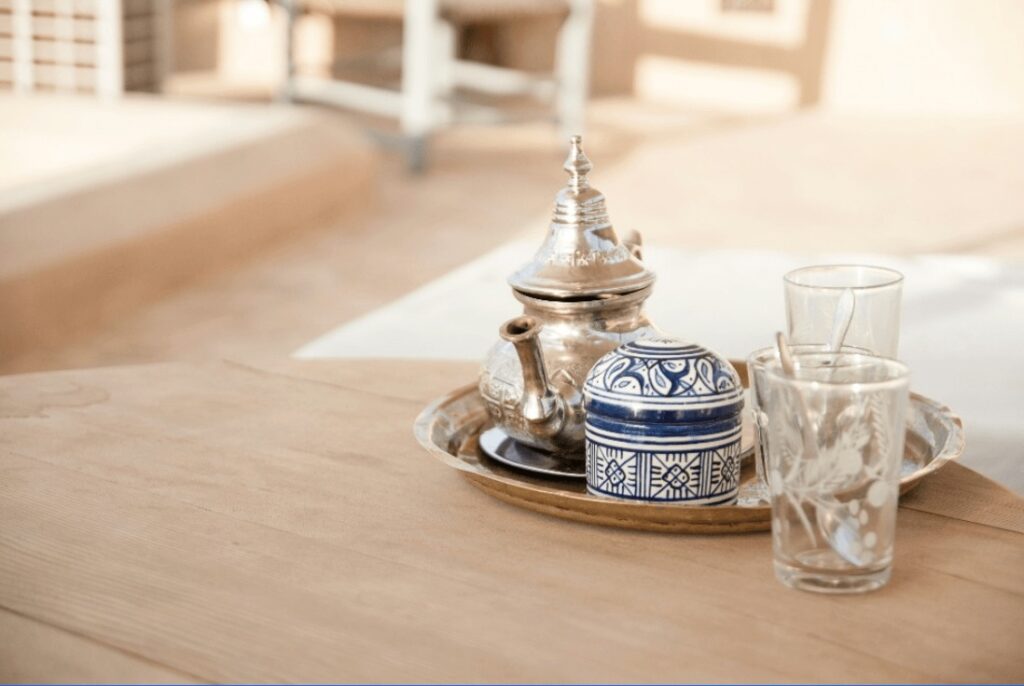
5. Dining Etiquette and Tea Traditions
Food in Morocco is a social experience and how you eat is just as important as what you eat.
If you are invited to eat with a local family, you may be ushered into a room with people of the same gender as you. In some situations, men eat with men and women with women.
- Always wash your hands before a meal – many traditional dishes are eaten by hand, using bread to scoop up meat and vegetables in place of cutlery.
- If eating with locals, use your right hand only, as the left is considered unclean. Just follow the lead of your hosts and you’ll be fine!
- If you’re sharing from a communal dish, cultural etiquette in Morocco dictates that you only eat from the section directly in front of you. In my experience, the people around you will make sure you get more than enough to eat (they might also fish out the best pieces of meat and place them directly in front of you).
And of course, no Moroccan experience is complete without mint tea — the “Moroccan whiskey” as my husband calls it. Accepting tea is a cultural ritual of hospitality and friendship – it’s almost rude to decline it!
But it can be incredibly sweet. Don’t feel obligated to finish the glass – accepting it in the first place is more important.
If you’re a foodie visiting Morocco, discover 10 dishes to try while exploring the country in my detailed article here.
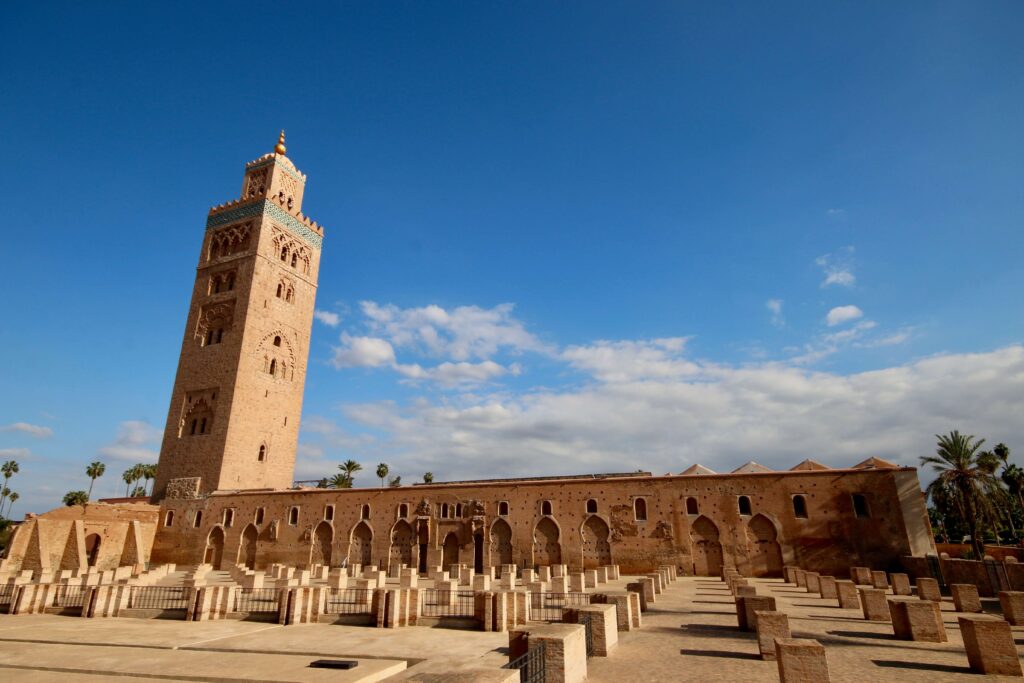
6. Religious Sensitivity and Ramadan Etiquette
Religion shapes daily life in Morocco and respecting Islamic customs will help you connect more deeply with locals.
- Mosques are generally off-limits to non-Muslims (with the exception of Casablanca’s Hassan II Mosque, which allows guided visits). Never wander into a mosque or try and photograph the interior. Instead, appreciate its beauty from the exterior.
- During Ramadan, locals fast from sunrise to sunset. Avoid eating, drinking or smoking in public during the day out of respect for those who are observing the holy month. Many tourist restaurants will remain open during the day. But it’s a good idea to load up on snacks, just in case.
- Once the sun sets during Ramadan, the atmosphere becomes really festive. Families and friends gather for iftar meals. If you’re invited to one, be sure to accept – this is an amazing time to learn about Moroccan traditions.
Even outside of Ramadan, being mindful of prayer times and showing patience during busy religious holidays is appreciated. Many stall owners will close briefly as they perform prayers and some restaurants will stop serving to allow their staff to break fast during Ramadan.
Discover everything you need to know about travelling to Morocco during Ramadan in my detailed article here.
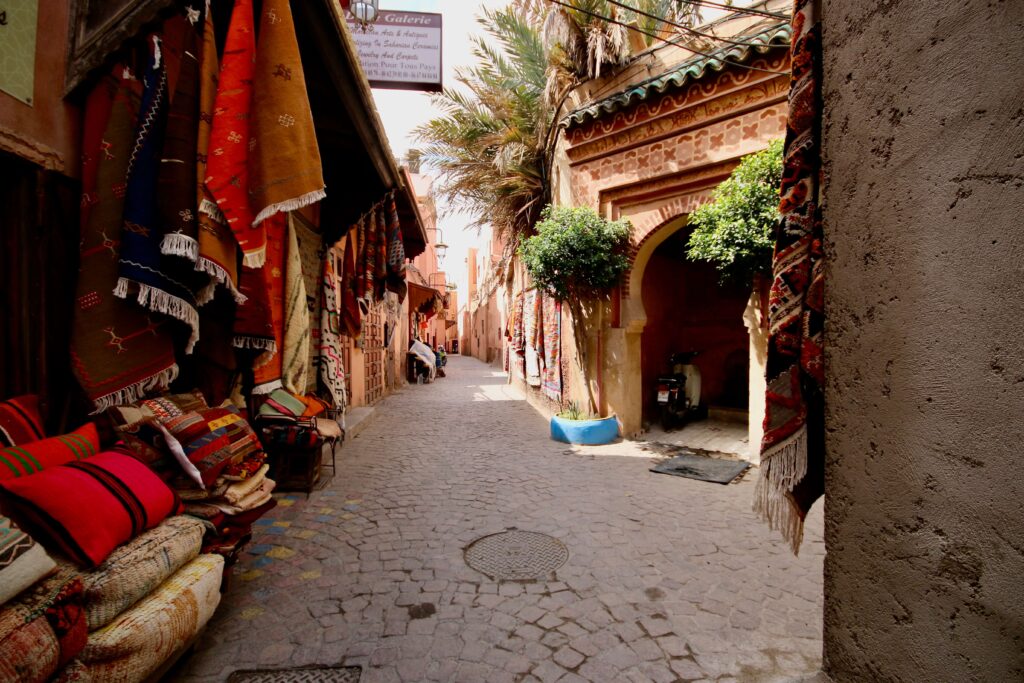
7. Bargaining and Market Etiquette
Haggling is an art in Morocco and it’s expected! But it can feel daunting if you’re not used to it. Some tourists also interpret it as a stall owner trying to rip them off, rather than a customary aspect of local commerce.
- Start by offering half or even a third of the initial asking price, then negotiate respectfully until you find a price that works for everyone.
- Keep it light-hearted and enjoy the experience. Moroccans love to laugh and humour is all part of shopping interactions.
- If you agree on a price after extended haggling, it’s polite to follow through with the purchase. Still deciding whether you really want an item? Shop around until you’re sure and then come back to start haggling.
And remember: bargaining isn’t about getting the lowest possible price – it’s about friendly interaction and cultural exchange. Vendors are all trying to support themselves and their families. So land on a price that is within your budget AND respectfully supports their work.
You can learn more about shopping in Morocco, including what to buy and where, in my detailed article here.
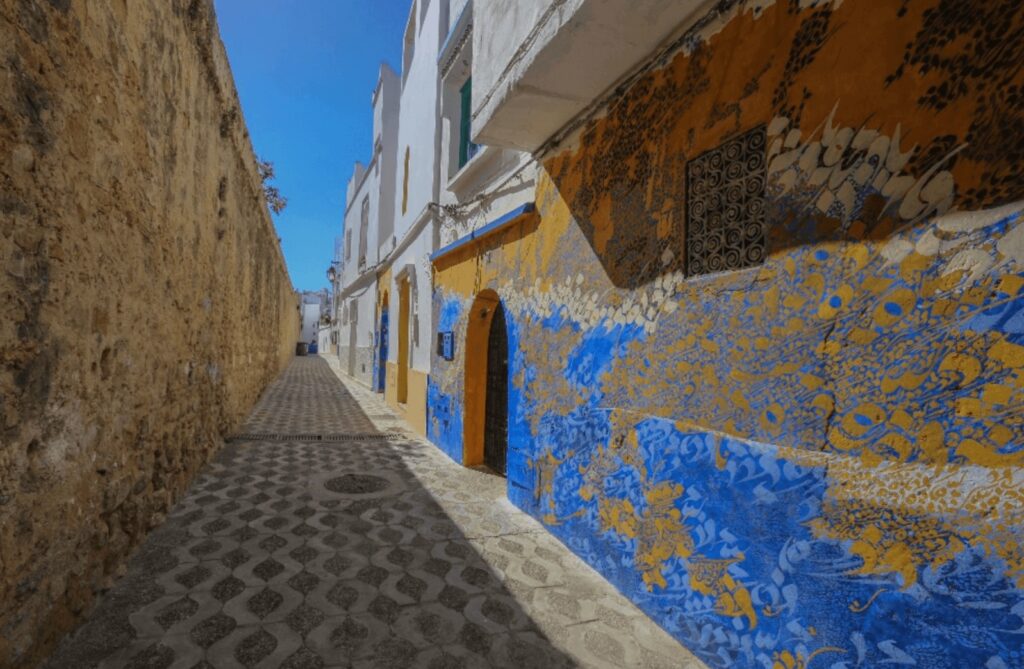
Respect Opens Doors for Solo Travellers to Morocco
For solo travellers, Morocco offers a rare mix of adventure, culture and connection – for me, meeting locals is all part of the experience. But understanding and respecting cultural etiquette in Morocco is key to enjoying the experience to its fullest.
By dressing modestly, greeting people warmly and respecting religious traditions, you’ll find Moroccans incredibly welcoming and protective toward solo travellers. Most are really eager for you to discover what makes their country so special and they want you to return home with the best impression possible.
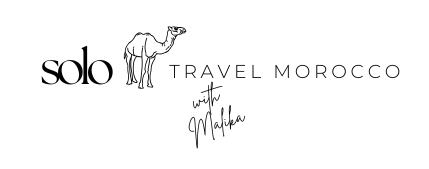
PLAN YOUR TRIP WITH MY FAVOURITE RESOURCES:
Find hotels via Booking
Book tours and attractions via Viator or GetYourGuide
Find a rental car via Discover Cars
Book flights via Kiwi or Booking
Search for buses and trains via 12Go or Omio
Get travel insurance via SafetyWing
Buy a digital eSIM with Airalo
By purchasing through my links, you’ll be supporting my website at no additional cost to you
-
Al Boraq High-Speed Trains: What Solo Travellers Should Know
Since it launched in late 2018, Morocco’s Al Boraq high-speed train has transformed how travellers move around the country. I’ve ridden it several times now (from Tangier to Rabat and from Kenitra to Casablanca) and it’s a really fun (and highly efficient) experience! Travelling at speeds of up to 320 km/h, Al Boraq trains are…
-
Why Morocco Is Ideal for Low-Impact Solo Travel
I often look back on the way I travelled in my 20s and realise it was all about me getting the most out of my destination. I wanted to see as much as I could on the limited budget I had available, and have lots of photos as proof of my trip. Fast-forward a couple…
-
Is June a Good Time to Visit Morocco? A Solo Traveller’s Guide
June in Morocco is somewhat unique and, dare I say, one of the best months to visit the country. It sits between spring’s mild temperatures and the peak summer heat, leading many travellers to overlook it entirely. But for solo travellers who don’t have to take their annual holidays in July/August and want to avoid…
-
Is May a Good Time to Visit Morocco? A Solo Traveller’s Guide
If you’re wondering whether May is a good time to visit Morocco as a solo traveller, this guide is for you! It details everything from weather to crowds and the best places to visit in Morocco in May to help you decide if it’s right for you. May in Morocco is hinting at summer, but…
-
Solo Travel in Morocco: A Complete Beginner’s Guide
So you’re thinking about travelling solo to Morocco. But you don’t know where to start, what to do or if you should travel independently in the first place! It’s a lot to wrap your head around. But don’t panic! I’m here to help, with 10+ years of experience travelling solo around Morocco. I’ve travelled from…
-
How to Build Your Own Morocco Itinerary as a Solo Traveller
In all honesty, I love travel planning and can spend hours devising the perfect itinerary. I think I love travel planning as much as I love travelling itself – for me, they’re two separate (but equally exciting) experiences! But I also understand that Morocco is one of those destinations that can feel overwhelming, particularly for…

I’m Malika, an Australian-born travel writer with an intense love for Morocco. I first travelled here solo in 2014 and after meeting (and marrying) a local, I made this North African gem my home.
Over the last 10 years, I have explored the country extensively, travelling to all corners with my partner, friends and solo.
